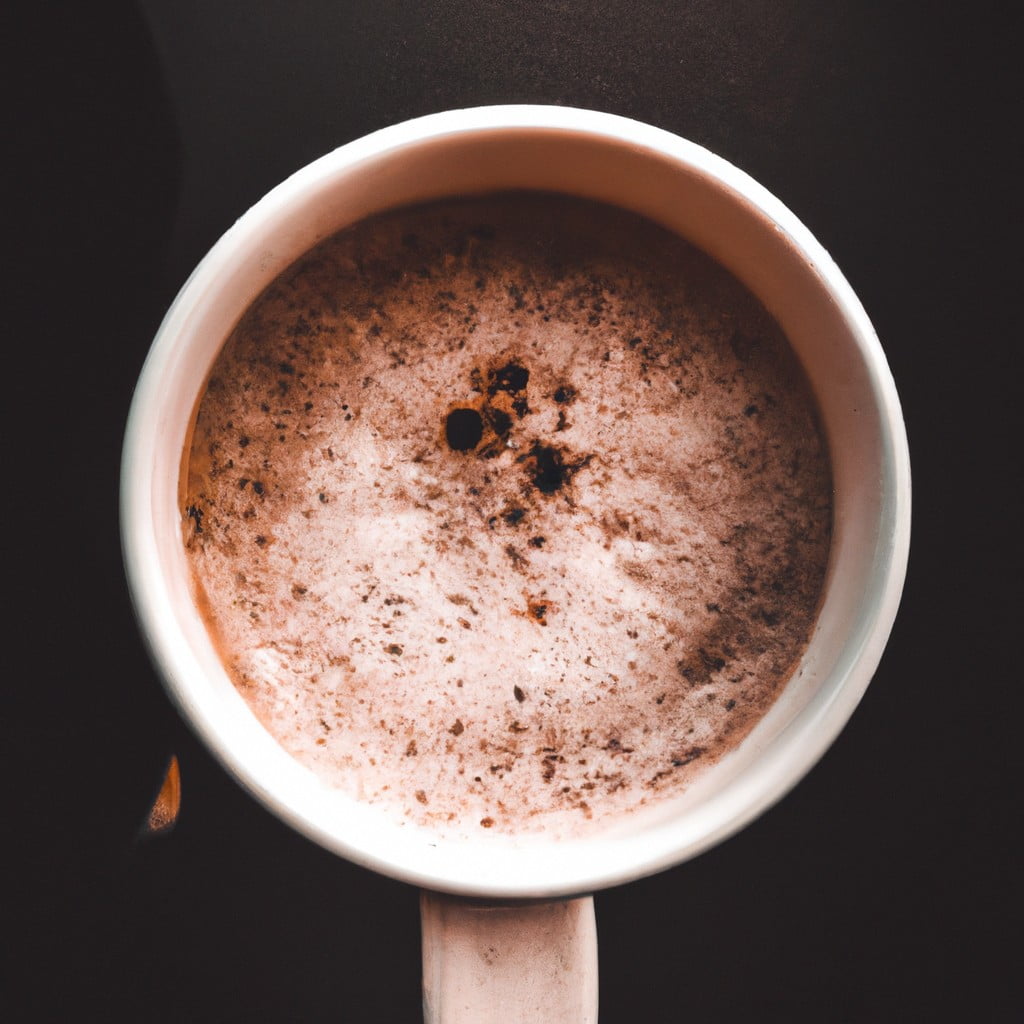Learn whether your cup of hot chocolate contains caffeine and understand how it compares to other caffeinated beverages.
Key takeaways:
- Hot chocolate typically contains 5-20 milligrams of caffeine per serving.
- Dark chocolate has more caffeine than milk chocolate.
- Cocoa powder used in hot chocolate mixes also contains caffeine.
- Hot chocolate has less caffeine than coffee and tea.
- Hot chocolate with caffeine can affect sleep patterns, so consider a caffeine-free version before bedtime.
Inside
Caffeine Content in Typical Hot Chocolate

Typical hot chocolate contains between 5 and 20 milligrams of caffeine per 8-ounce serving. This amount can vary based on the type of chocolate used and the preparation method.
Darker chocolate generally has more caffeine than milk chocolate.
For reference, a standard cup of coffee may contain 95 to 200 milligrams of caffeine, which is significantly higher than the caffeine content in hot chocolate.
When deciding on a nighttime beverage, hot chocolate may be preferable for those sensitive to caffeine.
Caffeine in Different Types of Chocolate
The caffeine content in chocolate varies depending on the type and the amount of cocoa solids. Here’s a quick rundown:
- Dark chocolate contains the most caffeine, averaging between 12 to 25 milligrams per ounce.
- Milk chocolate has less, usually about 5 to 10 milligrams per ounce.
- White chocolate typically contains negligible amounts of caffeine as it is made from cocoa butter, without the cocoa solids.
Cocoa powder used in hot chocolate mixes has caffeine too, but the exact amount varies by brand and preparation. A standard 8-ounce serving can contain anywhere from 2 to 20 milligrams. Keep in mind that adding more mix to create a richer flavor will also increase the caffeine content.
Ultimately, the higher the cocoa content in the chocolate, the greater the caffeine present. So, when selecting chocolate for hot chocolate, consider the type of chocolate used for a clearer idea of its caffeine level.
Comparison of Caffeine in Hot Chocolate to Coffee and Tea
Hot chocolate generally contains less caffeine than both coffee and tea. A standard 8-ounce serving has about 5 milligrams of caffeine, depending on the chocolate intensity.
In contrast, the same serving of brewed coffee delivers approximately 95 milligrams, making it a significantly stronger source of caffeine.
Tea, on the other hand, can vary widely but typically ranges between 15 to 70 milligrams per 8 ounces based on type and brewing time, placing it between hot chocolate and coffee in terms of caffeine content.
It’s worth noting that while a mug of hot chocolate might have less caffeine, it can still provide a mild stimulant effect, suitable for those who are sensitive to caffeine or who prefer a gentler boost.
Does Drinking Hot Chocolate Affect Sleep Due to Caffeine?
Hot chocolate typically contains small amounts of caffeine, which could potentially influence sleep patterns. Caffeine is a stimulant that can delay the timing of your body clock, making it harder to fall asleep. It can also reduce the total time you spend asleep and alter the normal stages of sleep, particularly impacting deep sleep.
The effect of caffeine on sleep varies widely among individuals due to factors such as personal sensitivity to caffeine, the amount of caffeine consumed, and the timing of consumption relative to sleep time. For those sensitive to caffeine, even the moderate amount found in hot chocolate can cause restlessness or insomnia. To minimize sleep disruption, consider enjoying hot chocolate earlier in the day or opting for a caffeine-free version closer to bedtime.
Hot Chocolate As a Source of Caffeine: Health Considerations
While hot chocolate does contain some caffeine, its levels are significantly lower than those found in coffee and tea. For individuals who are sensitive to caffeine or who are trying to limit their intake for health reasons, hot chocolate can be a more suitable evening beverage. The modest caffeine content can provide a slight boost without the risk of disrupting sleep patterns as strongly as a cup of coffee might.
However, it’s worth noting that many commercial hot chocolate mixes contain added sugars, which can have health implications, such as contributing to weight gain or increasing the risk of diabetes when consumed in excess. Opting for homemade hot chocolate using cocoa powder with minimal additives allows for better control over the sugar content and overall nutritional value.
As with all things, moderation is key. Enjoying hot chocolate in moderate amounts allows for a balance between the comfort of a warm drink and being mindful of caffeine and sugar intake. For those looking to minimize caffeine consumption further, white chocolate alternatives—containing only trace amounts of caffeine—can be a viable option.
Related
- Does Chocolate Have Caffeine: Unveiling the Caffeine Content in Your Favourite Treat
- Caffeine in Dark Chocolate: Health Effects and Content Levels
- Do Chocolate Covered Espresso Beans Have Caffeine: Your Guide to Their Energy Boosting Content
- How Much Dark Chocolate a Day is Beneficial for Your Health?
- Is Dark Chocolate Good for You: Detailed Benefits and Potential Risks